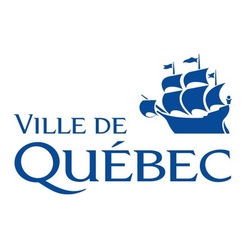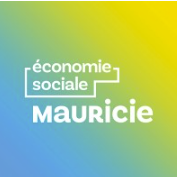
Open
MRC Joliette — Business Assistance Fund (FAE) – Stream 2
Last Update: December 3, 2025
Joliette, QC
Financial support for social economy projects in MRC Joliette
Grant and Funding
At a glance
Funding available
Financing goals
Reduce the ecological footprint
Selling in a new market
Eligible Funding
- Maximum amount : 25,000 $
- Up to 80% of project cost
Timeline
- Unspecified
Eligible candidates
Eligible Industries
- Educational services
- Health care and social assistance
- Arts, entertainment and recreation
- Other services (except public administration)
- Public administration
Location
- Joliette
Legal structures
- Social economy enterprise
Annual revenue
- All revenue ranges
Organisation size
- All organization sizes
Audience
- Startups
Overview
The MRC Joliette — Business Assistance Fund (FAE) – Stream 2 provides up to $25,000 in non-repayable contributions and/or interest-free loans to support social economy projects in their startup, expansion, or recovery phase. The program is designed to assist social enterprises in activities such as acquiring equipment, developing strategic or communication plans, and creating or maintaining permanent jobs within the MRC de Joliette.
Activities funded
- Creation of a new social economy enterprise in the MRC de Joliette.
- Expansion of an existing social economy enterprise within the territory.
- Recovery or turnaround projects for social economy enterprises facing challenges.
- Development or implementation of strategic business or communication plans to strengthen a social economy enterprise.
Examples of admissible projects:
$ 60,000
Launch a sustainable urban farming initiative
$ 100,000
Renovate community center to improve accessibility and services
$ 35,000
Implement a waste reduction program in local schools
$ 50,000
Create a training program for unemployed youth
$ 150,000
Conduct research on renewable energy in urban settings
$ 90,000
Develop an online platform for local artisans
Eligibility
- The applicant must be a social economy enterprise operating within the MRC de Joliette.
- The project must involve the creation, expansion, or recovery of a social economy enterprise.
- The enterprise must have its head office and operations in the MRC de Joliette.
- The project must create or maintain at least one permanent full-time job within 18 months of project start (including the promoter's job).
- The enterprise must generate at least 20% of its revenue from autonomous activities (sales of products or services).
Who is eligible?
- Social economy enterprises
- Non-profit organizations (NPOs) with entrepreneurial activities
- Cooperatives
- Community-based enterprises with an entrepreneurial approach
Who is not eligible
- Companies whose expenses were incurred before the official aid application was received by the CDÉJ.
- Organizations seeking funding strictly for debt servicing, repayment of upcoming loans, or projects that have already been completed (unless part of an approved recovery plan).
- Enterprises that have already received a non-repayable contribution from this program, except for applications related to a recovery plan.
Eligible expenses
- Capital expenses such as land, buildings, equipment, machinery, and rolling stock.
- Acquisition of certain intangible assets including software, business solutions, and patents (excluding research and development activities).
- Development of a credible strategic development or recovery plan prepared by a professional.
- Implementation of a credible recovery plan carried out by a competent resource.
- Development and implementation of a credible communication or promotion plan prepared by a professional.
- For start-up organizations only: working capital needs strictly related to business operations for the first 18 months.
Eligible geographic areas
- Organizations with their head office and operations located within the territory of the MRC de Joliette.
Selection criteria
- Social and economic impact within the MRC of Joliette generated by the proposed project.
- Submission of a business plan, or a recovery plan and financial forecasts for two years demonstrating the enterprise's viability or profitability.
- Establishment of realistic pricing and avoidance of unfair competition.
- Diversified funding sources, including monetary, human, and material investments.
How to apply
1
Verification of eligibility
- Ensure that the company meets the definition of a social economy enterprise as described by the CDÉJ.
- Verify if the project is located within the territory of the MRC of Joliette.
- Confirm that the project involves the creation or maintenance of at least one permanent job.
2
Preparation of the application file
- Develop a business plan or a recovery plan detailing the objectives and finances over a two-year period.
- Prepare a strategic development or communication plan, if applicable.
- Obtain at least two quotes for capital expenditures and others, if possible.
3
Compilation of the required documents
- Gather evidence of the legal structure of the entity (NPO, cooperative, etc.).
- Collect evidence of diverse funding including the investment contributions.
4
Submission of the request
- Submit the application file to the CDÉJ electronically or by mail.
- Include all supporting documents and the completed application form.
5
Confirmation of receipt
- Wait for a confirmation of receipt of the request by the CDÉJ.
- Keep all official documentation received for later follow-up.
Additional information
- The grant requires that beneficiaries enter into a formal agreement specifying both parties’ obligations and the conditions for disbursement.
- For each loan installment without sufficient funds, a fee of $25 will apply and must be paid immediately.
- Borrowers can accelerate repayment of interest-free loans without any penalty.
- Requests for additional financial statements or account status reports may be made in writing to the managing authority.
Contacts
info@cdej.ca
(450) 752-5566
Joliette, QC, Canada
Apply to this program
Frequently Asked Questions about the MRC Joliette — Business Assistance Fund (FAE) – Stream 2 Program
Here are answers to the most common questions about the MRC Joliette — Business Assistance Fund (FAE) – Stream 2. This section explains what the program is, how much funding is available, eligibility requirements, application deadlines, and other important details to help you determine if this grant is right for your business.
What is the MRC Joliette — Business Assistance Fund (FAE) – Stream 2?
How much funding can be received?
What expenses are eligible under MRC Joliette — Business Assistance Fund (FAE) – Stream 2?
What is the deadline to apply?
Is the MRC Joliette — Business Assistance Fund (FAE) – Stream 2 a grant, loan, or tax credit?
Who are the financial supporters of the MRC Joliette — Business Assistance Fund (FAE) – Stream 2?
Who is eligible for the MRC Joliette — Business Assistance Fund (FAE) – Stream 2 program?
Who can I contact for more information about the MRC Joliette �— Business Assistance Fund (FAE) – Stream 2?
Where is the MRC Joliette — Business Assistance Fund (FAE) – Stream 2 available?
Are startups eligible for the MRC Joliette — Business Assistance Fund (FAE) – Stream 2 program?
Apply to this program
More programs like this

Grant and FundingOpen
Innovative Projects Program
Hydro-QuébecSupports innovative, energy-efficient projects for multi-building developments

Grant and FundingOpen
Capitale-Innovation
Quebec CitySupports business innovation, commercialization, and market expansion projects

Grant and FundingOpen
Social Economy Support Fund
Social Economy MauricieNon-repayable financial aid supporting social economy projects in Mauricie

Grant and FundingClosed
Anti-Racism Action Program
Canadian HeritageSupports initiatives addressing racism, discrimination, and social barriers

Grant and FundingOpen
Regions and Rurality Fund (RRF) - Component 1 - Support for regional outreach
Gouvernement du QuébecSupports regional projects impacting Quebec's territories and communities

Grant and FundingOpen
Financial support program for government initiatives in community and volunteer action
Gouvernement du QuébecSupports community and volunteer action in Quebec organizations

Grant and FundingArchived
Call for projects in social innovation
Gouvernement du QuébecSupports innovative solutions addressing significant social needs in Quebec

Grant and FundingOpen
Community Action Support Program for Families – Component 4 – One-time Support for Innovative Projects
Gouvernement du QuébecOne-time funding for innovative family-focused community initiatives

Partnering and CollaborationGrant and FundingExpert AdviceClosed
Scientific and Innovative Venture Program (SIVP)
Québec Research FundSupports researchers launching innovative science-based businesses in Quebec

Grant and FundingOpen
Support, modernization, and alignment program with needs and markets for construction, renovation, demolition, and deconstruction waste
Recyc-QuébecSupports sustainable management of construction, renovation, and demolition waste
Sign up to our platform to access the MRC Joliette — Business Assistance Fund (FAE) – Stream 2 information sheet for free
Get access to 4,000+ programs, practical guides, personalized alerts, and an AI assistant to support your grant applications.